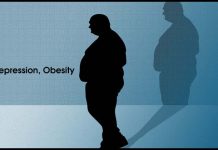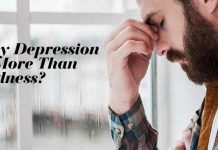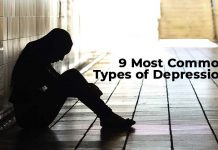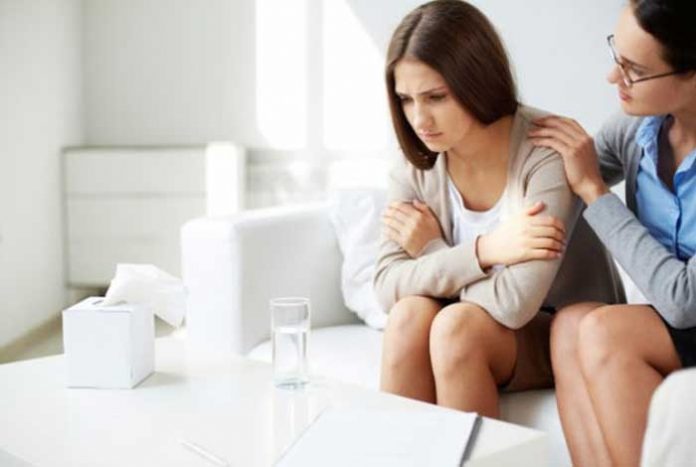
Overview and Facts
It is common for people to feel sad or down after a bad day at work. A kid might stay sad and silent after a day of punishment at school. People might also lose interest in things that were otherwise interesting to them earlier while going through a bad phase in their lives. This may be due to job loss, loss of a loved one or a damaged relation after a heated argument with the best friend. Well, this is considered normal till the time the sadness becomes persistent and a person starts avoiding his/her everyday tasks. This might be a sign of depression.
Also known as clinical depression or major depressive disorder, depression is a mental health condition that is defined by constant feeling of despair and sadness. People suffering from depression lose interest their lives, prefer being cut-off from the world and don’t feel happy about anything.
Generally, people are not able to identify depression on their own; thinking that it is just sadness. While sadness is just a normal human emotion, depression is something more than that. A sad person can feel happy by doing something he loves or may even feel good after going to a party. However, when a person is depressed, he is not able to make or keep himself happy by any means, A depressed person loses interest in almost everything, even in his everyday life. People with depression often feel alone, even when they are in a group. All they can think about is how sad they feel, or about the things that could make them sadder.
In other words, depression isn’t about listening to sad music or skipping a few meals. Instead, it is when nothing can make a person happy. Another sad aspect of depression is that people might never realize that someone around them is depressed because there are no typical symptoms of this mental disorder. A person might look physically active with nearly normal behavior, but you would never know what is going on in his mind or how he is feeling from inside.
According to a 2009-2012 report, about 3 out of every 20 people, aged above 12 years, were suffering from depression. Also, the number of women reported with depression was higher than men.[1]
Types and Symptoms of Depression
Types of Depression:
There are various types of depression with the most common being the major depression or major depressive disorder. A person with major depressive disorder feels sad all the time. It can deeply affect the life a person as well as those, who are around him. A person can suffer from major depression more than once in his/her life. It is generally caused by various social factors that deeply affect the life of a person. However, if the depression barely affects the everyday life, it is referred to as mild depression or subsyndromal symptomatic depression.
Besides these, there are various other forms of depression, discussed below:
- Persistent Depressive Disorder: Also known as dysthymia, it is said to happen when a person suffers from major depressive disorder for a minimum period of two years. However, there are times, when the symptoms are mild, but the condition continues for at least a period of two years.
- Psychotic Depression: In this type, a person with major depressive disorder sees or imagines bad things. They might have delusions about saddening things, such as guilt, illness and poverty. Also, they might even suffer from hallucinations of depressive things, wherein they see and hear things that other people cannot be able to.
- Bipolar Depression: It is caused by bipolar disorder. The condition can deeply affect the mood of a person. The mood can be as low that it can meet the symptoms of major depressive disorder. However, people with bipolar disorder not all the time suffer from bipolar depression as they might experience phases of extreme excitement and joy, or moments of extreme irritability, known as mania.
- Seasonal Affective Disorder: It is often described as a depression specific to a season. Commonly, people suffer from seasonal affective disorder during the winters. The depression is generally because of the cold climate and no traces of sunlight, and generally leads to social withdrawal, effective weight gain, and increased sleeping cycles. The seasonal affective disorder generally wears off during the spring or summer and can recur the next winter season.
- Perinatal Depression: This affects pregnant women. However, women might also suffer from mild depression during pregnancy, which is referred to as ‘baby blues.’ Generally, this depression goes away after a few weeks of delivery. However, perinatal depression is quite different from baby blues and as severe as major depression. Also, it might even continue after the delivery of a baby and is referred to as postpartum depression. It can deeply affect the life of new mothers as well as their newly born babies.
Besides, various other mental conditions are included in the category of depressive disorders, classified on the basis of Diagnostic and Statistical Manual of Mental Disorders, 5th Edition (DSM-5) guidelines.
Disruptive mood dysregulation disorder is also included in the category of depressive disorders and is generally diagnosed in children and characterized by chronic anger, irritability and frequent outbursts of rage. Also, premenstrual dysphoric disorder (PMDD) that happens in women is also a form of depressive disorders.
Symptoms of Depression:
Some common symptoms of depression are as follows:
- Chronic sadness and a low mood, often followed with loss of interest in everything around.
- Loss of desires and wishes, i.e., things that were once exciting aren’t a subject of interest anymore.
- Avoiding social interactions and spending time alone.
- Pessimistic behavior and hopelessness.
- Negative feelings like feeling helpless and worthless, and emotions of guilt and shame.
- Appetite changes, i.e., avoiding food or eating too much. This can also lead to weight fluctuations, i.e., excessive weight gain or weight loss.
- Disturbed sleep pattern, i.e., not being able to sleep (insomnia) or sleeping too much.
- Feeling tired and weak most of the time, and not being able to remember or concentrate on things.
- Talking and moving slowly.
- Headache or digestive problems without any specific reason.
The symptoms of depression can even get severe. A depressed person may develop suicidal thoughts and can even attempt a suicide. Moreover, this isn’t necessary that a person suffering from depression has all of these symptoms. In fact, these symptoms aren’t easy to observe and there are times when a person is depressed without any of these symptoms. A person might seem happy and full of life, but no one knows what is going on inside his mind.
Also, the symptoms may vary in case of children and teenagers. If a child is suffering from depression, it can be detected by observing his/her behavior. Over-clinging with parents and irritable behavior or avoiding attending school might signify that the child is suffering from depression.
In case of teenagers, common behavioral signs of depression are avoiding social situations and extreme sensitivity.
Depressed teenagers might also indulge in activities like smoking, alcohol abuse, and can even do self-harm. In addition to these, depressed teenagers sometimes indulge in activities such as doodling, writing or painting to express their sadness. Their work can be analyzed to check whether they are suffering from depression.
Besides, depressed people might not feel chronic sadness, but may exhibit other signs of depression, such as appetite changes, disturbed sleeping pattern, or oversensitivity. They might feel very sensitive about what people think about them as well as criticism. This condition is referred to as atypical depression.
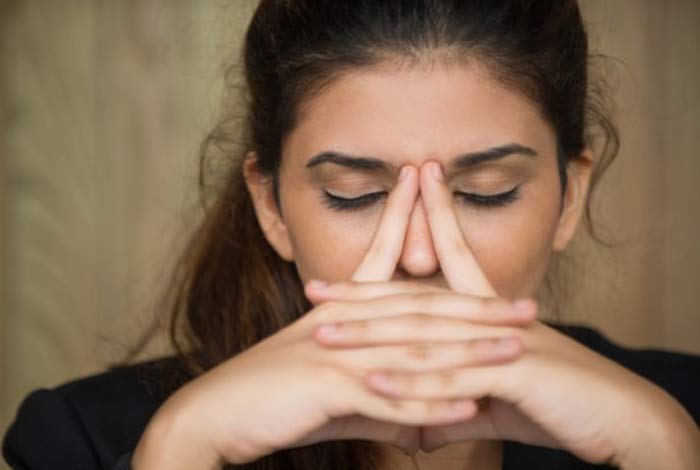
Risk Factors of Depression
Depression is a common disorder and can affect a person of any age group; be it an adult, teenager or child. Higher number of cases of depression suggests that women are at a greater risk of developing depression than men. However, the undiagnosed cases of the condition still go unnoticed many times.
There are certain factors that increase the risk of depression. These include:
- Genetics: There are chances that a person may inherit the condition his previous generation. If someone from the previous generation has suffered from depression, then chances are high that the children can also develop the condition because of the inheritance of similar genetic structure.
- Social, Environmental, or Psychological Factors: These factors might affect the mind of a person and can lead to depression. There are various situations that can affect the mind of a person as a kid or adult. If a child has family issues like abusive parents or lack of attention from parents, they are likely to develop depression in future.Besides childhood trauma, if a person encounters socially embarrassing or traumatic situations, he may develop depression. Situations like losing a job as an adult or bullying during adolescence may also cause depression.
- Other Health Conditions: If a person is suffering from some other medical condition, such as diabetes, coronary heart disease, Parkinson’s disease and cancer can develop depression. However, various other mental disorders like social anxiety disorder, bipolar disorder and attention deficit hyperactivity disorder (ADHD) are also known to increase the risk of depression.
- Drugs and Substance Abuse: Consumption of some prescription drugs can also enhance the risk of developing depression. Also, people, who consume excessive amounts of alcohol and have substance abuse habits are at higher risk of depression.
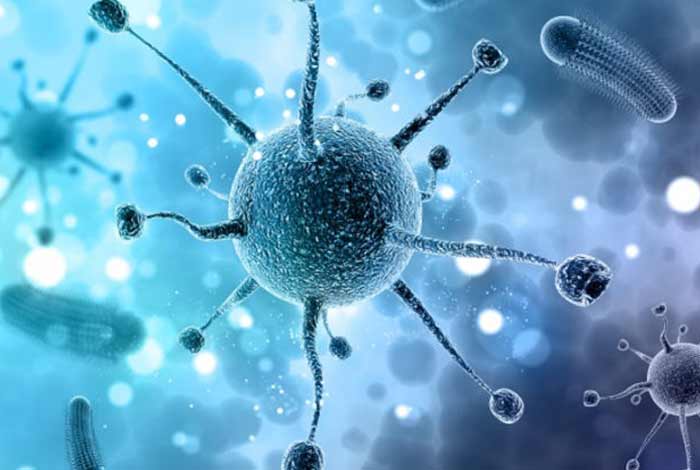
Do I have it?
Generally, the depression stays undiagnosed, because of the reluctance of the affected person to get help or recover from the state of sadness. However, if you feel chronic sadness or you are losing interest in things around you, there are chances that you are suffering from depression. In such a case, you should not give up on yourself and seek help from a paramedic or consult a mental health professional.
Also, if seeking help from a doctor seems difficult, you should try talking about your condition with your family members and friends. Besides, if you think that someone else around you is suffering from depression, you need to keenly observe his symptoms. Symptoms, such as chronic sadness and loss of interest in things are the general signs of depression. Additionally, you have to analyze their conversations as well as what they write, as this might help you understand what is going on in their mind.
There are times when a person is depressed without any visible symptom of the condition, and for this reason, no one around him is able to analyze what is wrong with them. Such people keep suffering from depression without being aware of their situation.
It has been observed that people confuse depression with common sadness. Some people, while going through a bad phase or some unwanted situation, mistake their sadness for depression. But, the fact is depression isn’t feeling just a bit sad, it’s more than that.
Apart from this, there are other health conditions that can be mistaken as depression. For instance, some symptoms of bipolar disorder are similar to those of major depressive disorder. Also, chronic fatigue syndrome can also cause unexplained tiredness and weakness, just like depression.
Thus, a proper diagnosis of the condition is required, so that the doctor can suggest appropriate treatment.
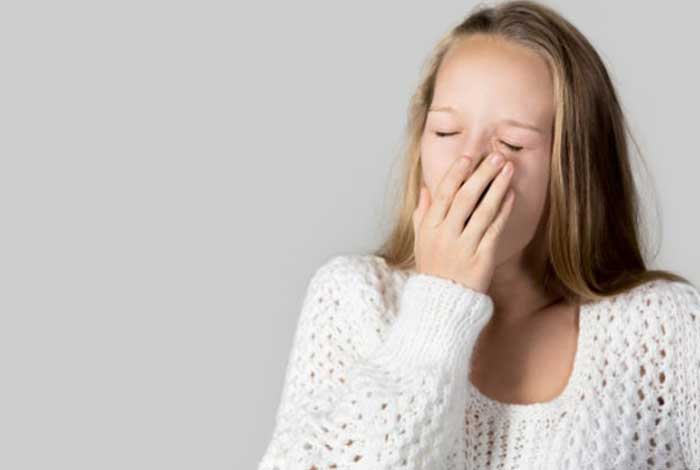
Causes and Prevention of Depression
There is no certain cause that can cause depression is people. However, researchers believe that depression is caused as a result of various social, environmental and psychological factors. Also, it is believed that genetic inheritance of traits is a possible cause of depression in people.
Depression can happen to anyone and there are various factors that can trigger depression. Sometimes, people with a history of childhood trauma like parental abuse and ignorance, can develop depression. Also, there are various social situations that can give rise to depression during adolescence or adulthood.
People who had been bullied during their school or college days can develop depression in the later phase of their life. The condition can also be caused because of demise of some loved one, or a job loss. To be precise, there is no specific factor that can lead to depression in people.
Since there is no defined cause of depression, there is no specific way to prevent it. However, it is possible and necessary to prevent associated complications suicidal thoughts and suicide attempts. The best way to avoid risks associated with depression is self-acceptance and ask for necessary help.
If a person is suffering from depression, he must understand the severity of his condition and develop willingness to seek assistance from doctors, friends and family members. Also, it is important to get help as soon as possible, and stop the symptoms from getting worse.
Diagnosis and Tests for Depression
The diagnosis of depression is important because usually people mistake sadness or grief for depression. It has been observed that people, who believe that they are suffering from depression, are actually just sad. On the other hand, most of the times, depression stays undiagnosed because of the reluctant attitude of people with depression towards their condition.
Diagnosis of depression involves physical examination of the symptoms. The doctor may ask various questions to the patient about their symptoms and other medical condition they are suffering from as it might be a reason for depression. It is common for people with coronary artery disease, diabetes or Parkinson’s disease to develop depression. Also, the doctor might recommend a CBC blood test to check whether some underlying health condition is causing depression.
Generally, depression is diagnosed as per the guidelines provided by DSM-5. If a person meets 5 or more of the DSM-5 criteria, a person is said to be suffering from depression. The DSM-5 criteria for the diagnosis of depression are as follows:
- Chronic sadness and depressed mood along with the feeling of hopelessness and emptiness, and that too, nearly every day. In case of children and adolescents, prevalent irritability and annoyance.
- Loss of interest in things and activities that seemed to be exciting once.
- Unexplained weight fluctuations, i.e., excessive weight gain or weight loss and changes in the appetite.
- Disturbed sleeping pattern, i.e., hypersomnia or insomnia.
- Fatigue, weakness and low levels of energy accompanied with slowed down speech and pace of walking.
- Reduced ability to think or memorize things, and not being able to concentrate or take decisions.
- Repetitive suicidal thoughts or planning about how to die or kill oneself; often followed by suicide attempts.
If a person meets DSM-5 criteria, then it is confirmed that they are suffering from major depressive disorder, or simply, depression. However, the DSM-5 guidelines are not considered if the depression is caused by some underlying health condition or if the symptoms are observed for a duration of less than two weeks.
Another method used to diagnose depression is Hamilton depression rating scale – a questionnaire with 21 questions listing various depression symptoms. The patient is given the questionnaire and asked to rate their symptoms. Later, the doctor analyses the test and determines the severity of the condition.
Proper diagnosis helps differentiate depression from other health conditions and so, helps the doctor in prescribing appropriate treatment.

Treatment and Care for Depression
Treatment of Depression:
The most important aspect of depression treatment is accepting the condition and asking for help. If a person with depression asks for help, they can get rid of their sufferings; no matter how severe the condition is. The treatment usually involves psychotherapy counseling and medications, or sometimes both. Generally, medication isn’t considered as the primary treatment for depression. However, if psychotherapy isn’t enough, doctors might prescribe medications to support the treatment. Various treatment approaches for depression are discussed below:
Psychotherapy, commonly known as talk therapy, involves conversations with the patient that can help them recover from depression. The process involves talking with the patient and asking them about their problems and discussing the ways that can help treat depression. Different psychotherapies used to treat depression are as follows:
- Cognitive Behavioral Therapy (CBT): It helps reframe the thoughts of a depressed person. CBT works on the theory that a person’s thoughts are linked with his mood and behavior. The process involves cognitive restructuring, i.e., re-framing the thoughts of a person by eliminating negative thoughts and replacing them with positive ones along with behavioral activation, in which the patient is taught to establish communication and participate in their everyday activities.
- Interpersonal therapy (IPT): This involves dealing with the symptoms of depression that affect the life of a person. Generally, the symptoms deeply affect personal life and relationships of a person. The interpersonal therapy focuses on improving the communication of a person, so that he/she can improve the symptoms. The process involves discussing problems with a psychotherapist that help outline the stages of the treatment.
- Problem-Solving Therapy: Also known as short-term therapy or structured problem solving, this type of psychotherapy focuses on improving the coping skills of people with depression, so that they can skillfully face and tackle troublesome situations in their life. This therapy is generally used for people, who have their symptoms of depression being triggered by some external factors.
Medications: These aren’t generally used for the primary treatment. However, if the psychotherapy counseling sessions aren’t enough for the treatment of depression, medications are prescribed along with the therapy. Medications used to treat depression are known as antidepressants. Some common antidepressants are as follows:
- Selective Serotonin Reuptake Inhibitors (SSRIs): These are the most common types of antidepressants with minimum side effects; thus, primarily prescribed by doctors for the treatment of depression. Some of the common SSRIs include fluoxetine, citalopram, paroxetine, escitalopram, sertraline and vilazodone.
- Serotonin-Norepinephrine Reuptake Inhibitors (SNRIs): These include duloxetine, desvenlafaxine, venlafaxine, and levomilnacipran.
- Monoamine Oxidase Inhibitors (MAOIs): These are generally prescribed when other antidepressants are ineffective. This is because they are very reactive and can interact with various foods, such as pickles, wines and some types of cheese.
When a doctor prescribes MAOIs, they advise patients to follow a strict diet to avoid any harmful side effect. Some common MAOIs include phenelzine, tranylcypromine, and isocarboxazid. An MAOI, known as selegiline is available in the form of skin patches and produces relatively less side effects as compared to other MAOIs.
- Tricyclic Antidepressants: Though these drugs are effective in treating depression, they can produce severe side effects. Thus, they are only prescribed by doctors when a person has already used an SSRI antidepressant earlier. Some examples of tricyclic antidepressants are imipramine, doxepin, amitriptyline, nortriptyline, desipramine, trimipramine and protriptyline.
- Atypical Antidepressants: These are different from other medications for depression. They help regulate neurotransmitters – chemicals that control the transmission of information between brain cells. Atypical depressants help control severe mood changes and so, helps manage depression symptoms. Some atypical antidepressants are bupropion, nefazodone, trazodone, mirtazapine and vortioxetine.
It is not necessary that every antidepressant would help in the treatment of depression. The doctor might prescribe various antidepressants and check which antidepressant suits the patient best. A patient might use various antidepressants or a combination of various antidepressants, depending on the severity of his symptoms, along with psychotherapy.
Also, there are various risks associated with the use of antidepressants, one of the common risks is increased suicidal thoughts and behavior. As per the guidelines by the U.S. Food and Drug Administration (FDA), all the antidepressants are prescribed with a serious warning as it is observed that in some people, i.e., children, adolescents and young adults aged below 25 years, antidepressants usually increase the signs of depression and enhance suicidal thoughts. These behavioral changes are usually observed during the first week antidepressant use, or when the dosage is changed. Also, it is advised to closely observe the person, who has recently started using antidepressants or has changed the dosage.
There is one more risk associated with the use of antidepressants. If a person is using some antidepressant and suddenly stops using it, then it might lead to worsening of symptoms and can even result in severe withdrawal symptoms. Generally, antidepressants aren’t addictive, and may lead to physical dependence. Hence, it is advised not to abruptly stop using antidepressants, even if the symptoms are reduced. To stop the medication, doctors gradually lower the dosage till the time there is no need of antidepressants.
Moreover, in pregnant women, antidepressants can increase the risk of health-related complications in the unborn child. Thus, it is advised to consult a doctor before using antidepressants during pregnancy.
Besides medications and psychotherapy, there are other treatment methods, known as brain stimulation therapies that can help a person recover from depression. These methods are generally used when the symptoms are severe and psychotherapy counseling and antidepressants are not of much help. These include:
- Electroconvulsive Therapy (ECT): This method involves the use of electric currents that are passed through the patient’s brain. These currents are effective in improving the function of neurotransmitters, thus helping relieve mood changes due to depression. The treatment is painful; hence, patients are given a dose of anesthesia before initiating the procedure and thus, they can barely feel the electrical impulses.
Generally, a patient with depression attends about three ECT sessions a week for approximately 3-4 weeks. The ECT treatment can cause a few side effects such as disorientation, confusion or temporary memory loss. However, the side-effects usually wear off after some time. - Repetitive Transcranial Magnetic Stimulations (rTMS): This technique involves the use of treatment coils that transmit magnetic pulses to the patient’s brain. The coil is placed at the scalp and the transmitted signals help improve the functions of neurotransmitters in the brain.
Care for People with Depression:
Various treatment methods can help in the recovery of a person suffering from depression. Besides these, support and care from the people around also play a major role. It is necessary to provide essential care to a person suffering from depression. Depressed people have a very sensitive state of mind and can even get affected by mild jokes or criticism. Thus, it is necessary to speak to them with caution and motivate them to indulge in conversations.
The best way to provide care to a depressed person is to begin conversations with them. It is necessary to talk to them and try to help them overcome their sadness. Talking can help in revealing the cause of sadness and can further help in the treatment of the condition.
Incidentally, people with depression don’t ask for help and keep suffering from the condition. Thus, if a person suspects that someone around him is suffering from depression, he should try initiate conversations with that person and encourage them to go for proper diagnosis or treatment.
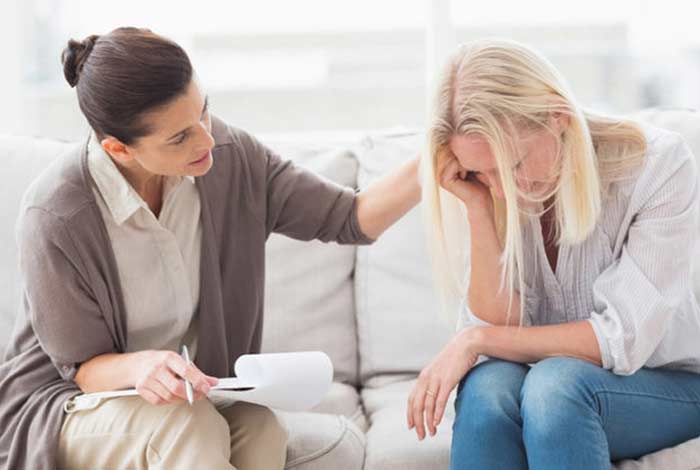
OTC Medications and Self-Management Methods for Depression
There is no over-the-counter (OTC) medication available for the treatment of depression. Also, it is advised not to use any kind of OTC or even prescription drugs without medical advice for its treatment as this can possibly worsen the symptoms.
Sometimes, depression is linked with the use of certain medications that trigger the symptoms of depression. Moreover, if a person around is suffering from depression, it is necessary to look over him and keep checking whether he is not using any medication that can affect his condition.
Apart from all the therapies, medications and care, the most important part of the treatment is accepting one’s condition and taking necessary steps to begin the treatment. Often, people suffering from depression deny the treatment and keep themselves suffer. The first step towards the self-management of depression is to prepare oneself for the treatment and willingness to get better. Also, it is important to strictly adhere to the treatment. Depression isn’t a usual condition that can be treated within a few days, it takes time to completely cure depression. Thus, it is necessary for the patient to keep patience and believe in himself, doctors, caregivers as well as the treatment for better outcomes.
Moreover, it is necessary to learn the ways that can help the patient to cop up with the depression during the situations that trigger its symptoms. A doctor or a mental health expert can help him determine the ways that can help control emotions during dreadful situations or events that might lead to depression.
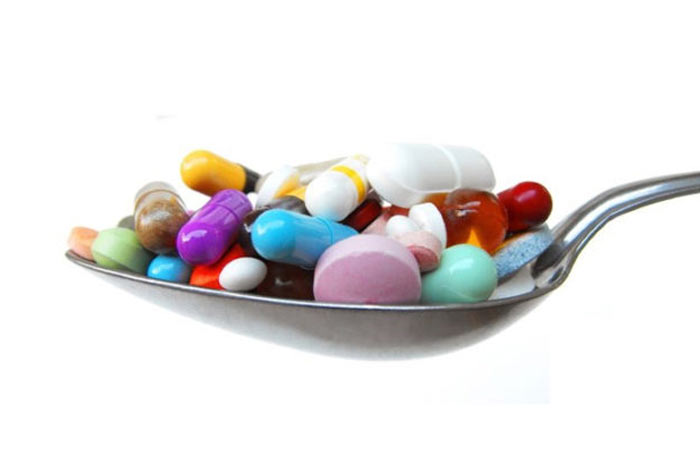
Natural Ways to Cure Depression
The natural treatment for depression involves self-management of the symptoms by learning about the condition and taking an initiative to get better. A person suffering from depression can only get better if he has a strong willingness to recover. There are several natural ways to manage depression:
- Setting Up a Routine: This can help reorganize the distorted life because of depression. Usually, a person suffering from depression don’t have a defined sleep or eating schedule. If they decide to get better and set up a defined routine for sleep and meals, they can manage their condition in a better way.
- Exercising Regularly: Exercise helps in boosting the levels of endorphins in body. These are chemicals that affect the mood of a person and helps them feel good about themselves. Also, exercise helps the brain flush out negative emotions.
- Setting a Sleeping Schedule: This helps improve the symptoms like fatigue and weakness. Generally, depression leads to overthinking that can often disturb the sleep pattern of a person. Moreover, some people with depression keep sleeping all day. Setting a sleeping schedule and training your mind and body to follow the routine can improve your sleep pattern and help reduce the symptoms of depression.
- Focusing on Responsibilities: This provides strength to fight off the symptoms of depression. Taking responsibilities of the family, friends or even a pet can strengthen mind to cope up with the symptoms.
- Diverting the Mind: By doing something different, such as, spending time in reading a book or try painting or sketching can keep you away from negative thoughts or triggers of depression.
To be true, natural ways or any other treatment methods for depression solely rely on the patient’s utter determination to recover from the condition and can only be effective if the patient decides to get their life back on track.

Health Tip by Expert
No matter how bad the situation is, there is always a hope. Depression is treatable, regardless of the severity of symptoms. If you are depressed, it is advised to talk with friends and family and get a professional help. This can assist you in getting better. Self-harm or suicidal thoughts are not the solution. Accepting one’s condition, asking for help and taking an initiative for the treatment can help in getting better and lead a better life.
Also, if someone around you is suffering from depression, it is advised to go and talk to them and try to help them as much as possible. Another crucial point to be taken care of is that patients with depression are oversensitive. Hence, while dealing with them, it is necessary to keep a check on your words, as you never know how much your word can affect their emotions and life.


